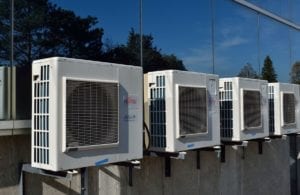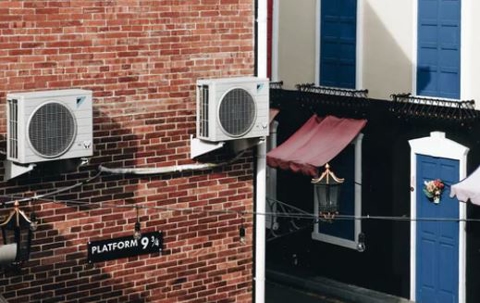During the summer your air conditioner is hard at work keeping your family comfortable through the start of the warmer temperatures. But when was the last time you checked the air filter? This is one aspect of home maintenance that often goes ignored. In fact, most people think the filter is only something to worry about in the winter. But filter changing and air conditioning repair in San Jose, CA are just as important with long-term air conditioning use. So if you haven’t checked your air filter yet this season, you are overdue.
What is an Air Filter?
All central cooling and heating systems should have an air filter. An HVAC air filter sits in the air return duct or blower compartment. The air return is where the system pulls in air from the home to send it to the air conditioner. They are often located behind grills on the wall, ceiling, or above or below the HVAC unit. Some HVAC systems even have a return in each room. It is important to locate each of the returns so you know where to find your air filters for replacement.

What are Different Types of Air Filters?
There are many different types of air filters. Disposable fiberglass air filters are the most common but are not as efficient at straining out smaller particles. Pleated filters are made from cotton or polyester to filter pollutants, and more pleats mean better screening. Reusable air filters are designed so you can remove and clean them as per manufacturer’s instructions for more prolonged use. Electrostatic air filters charge particles to magnet dust and prevent it from cycling through the home. HEPA filters are effective in screening up to 99.97% of contaminants and are good for individuals with allergies or respiratory issues.
How are Air Filters Rated?
Choosing the right filter can be a daunting task, especially when you have to decode the rating systems. Luckily most air filters include a Minimum Efficiency Reporting Value (MERV) showing the ability of the filter to filter out smaller particles. The rating usually ranges from 1 to 20 and communicates minimum efficiency or the lowest performance a homeowner can expect. The higher the number, the better the filter is at screening out particulates within peak efficiency. So filters with a rating of 1 to 4 are minimal filtration, whereas filters with a rating of 12 to 16 capture even more particulate matter. For most standard HVAC systems homeowners do not want to use filters with a MERV rating of more than 16.
What Happens When a Filter Clogs?
You should check your filters once a month, and replace them as soon as they get clogged. If your HVAC system is operating with a clogged filter you might notice a few things. First, cooling power is often diminished. The blower has to work harder to pull air through the filter and into the system. This decreases efficiency, prolongs run times, and wears out the system much faster. You might also experience hot or cold spots in different parts of the home and the air conditioner will always be playing catch up and driving up your energy bill.
If you have been running your air conditioning since the start of summer and haven’t checked the filter or scheduled your annual air conditioning repair in San Jose, CA then now is the time to get it done. If you need repair or help to locate your filters call Pelle Heating & Air Conditioning.
The post Have you Checked the Air Filter This Season? appeared first on Pelle Heating & Air Conditioning.

